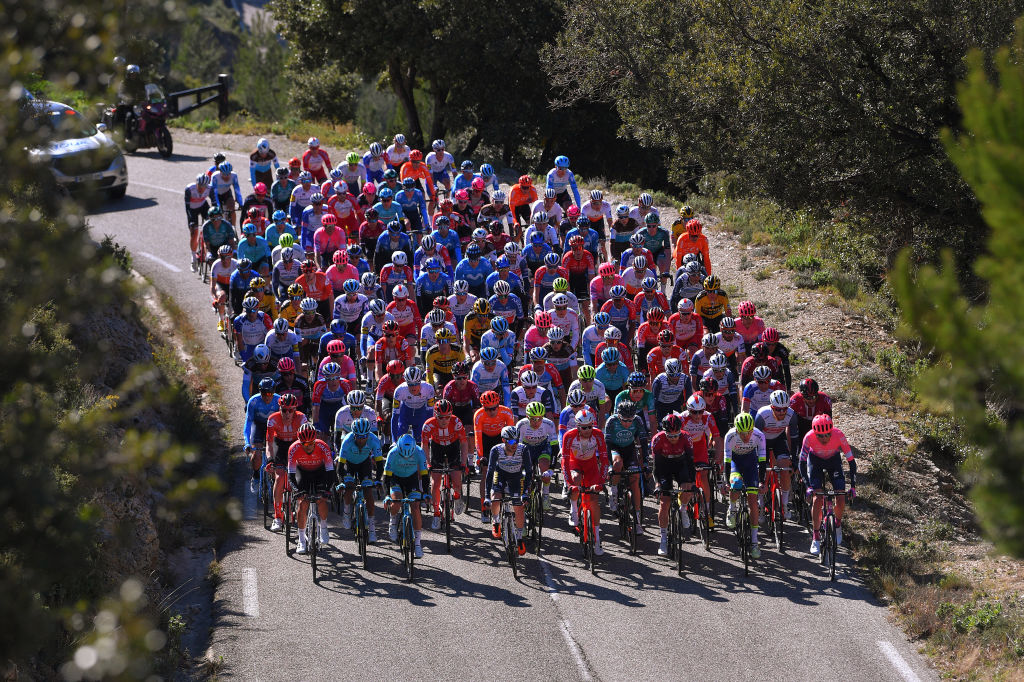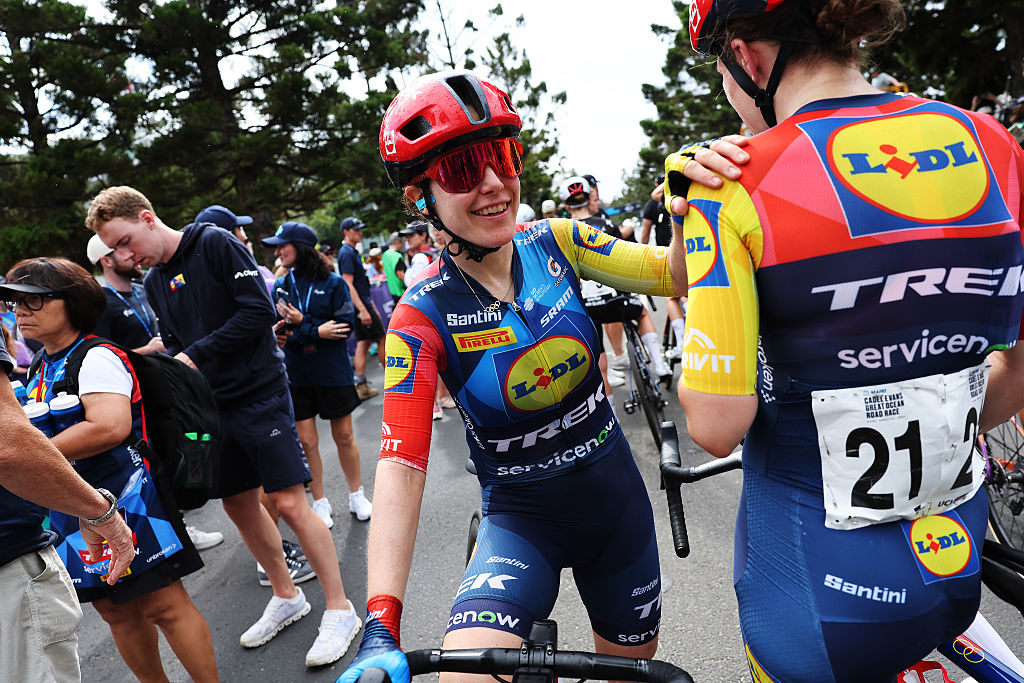Pressure mounts on spring race calendar with rising COVID-19 infection rates and vaccine delays
Flexible plans continue to be essential for teams and organisers as events hang in the balance

The latest race content, interviews, features, reviews and expert buying guides, direct to your inbox!
You are now subscribed
Your newsletter sign-up was successful
Pressure on the race calendar is mounting across Europe with increasing infection rates and delayed COVID-19 vaccination programmes, increasing the risk of further postponements and cancellations across the spring racing programme.
Case numbers from new variants of the coronavirus are rising in a number of countries and the EU is also struggling to fulfil its objective of vaccinating the entire population of Europeans over the age of 16 by the end of the summer.
As of January 25, France had used only 49 per cent of the vaccines already made available to it by the EU which contrasts with Denmark, for example, which had used 100 per cent.
At the time of writing, the Tour Down Under, the Vuelta a San Juan, Challenge Mallorca, the Vuelta a Andalucía, the Volta ao Algarve had all either been postponed or cancelled with the looming GP Marseillaise, Étoile de Bessèges and Tour de la Provence at risk, as a new lockdown appeared likely in France.
Asked by Cyclingnews if Paris-Nice might also be a casualty of a curbed calendar ASO, owners of the Tour de France, responded simply with a “no comment,” followed by a further brief confirmation that there would be “no change” to ASO’s racing programme.
However, the cycle of recurring lockdowns is now becoming familiar, despite the development of vaccinations, with some — including virologist Devi Sridhar, chair of global public health at the University of Edinburgh — telling the media that the pandemic will last for “several years”.
“People think the vaccine is a silver bullet,” Sridhar told Channel 4 News. “It's not going to be. Richer countries will roll it out and get more of their life back by next summer, but poorer countries are going to suffer for years. So, for the world, the pandemic is going to go on for several years.”
The latest race content, interviews, features, reviews and expert buying guides, direct to your inbox!
Sridhar's colleague at the University of Edinburgh, Clinical Lecturer and Researcher Thomas Christie Williams, reiterated the concerns of those who increasingly believe that it is untenable, both from a public health and an ethical standpoint, for professional sport to continue.
“In my opinion we are already at that point,” Christie Williams told Cyclingnews.
“This is a pandemic that is spread by air travel, as can be seen by the rapid global dispersion of variant strains. Some of these strains appear to be more transmissible and some also appear to threaten the effectiveness of vaccines.”
“Throughout the pandemic it has always seemed to me hard to continue to justify non-essential international travel. The fact that international sport has often carried on, despite the worst developments in different countries, has played a role in normalising this difficult to justify behaviour.”
Christie Williams also believes that it would be wise for major sporting events, including the Tour de France, to have a plan B.
“I don't think any European government will want to see a further wave of infection. Vaccines are currently in short supply. Add in to that the growing pressure for more equitable vaccine sharing with lower income countries, it is hard to see comprehensive vaccine coverage for Europe until Autumn/Winter. So yes, I would advise a plan B for the Tour.”
Meanwhile, teams, managers and race promoters are, for the second season running, making ad hoc plans as they battle to keep their shows on the road.
Asked if his team had a plan B, should this year's calendar be rescheduled, EF Education-Nippo team boss Jonathan Vaughters responded: “I don’t think we have a plan A.”
“We have a loose and fluid plan of being as nimble and flexible as possible. I see many other teams doing the big traditional team get together in January. We avoided that as we didn’t want to risk it and we want to keep as many options open at all times.”
Kjell Carlstrom, general manager of Israel Start-Up Nation, said that “races have already been postponed and of course, this affects everyone's plans. However, it is more important to find ways for society to work with these protective measures, restrictions and protocols instead of worrying about if everything is again locked down."
“Cycling as a sport has been able to show how well the protocols work and that it is in fact possible to make some sort of a race bubble with the necessary testing and protection protocols. These are done both for preventing the spread as well as making sure that the race bubble is clean.”
“‘Bubbles’ during races are a bit of a fabricated concept,” Vaughters suggested.
“We stay in hotels with the public and interact with the public. Not as much as before, of course, but it’s hardly a sealed-off system we live in. All that said, very few riders and staff contracted the virus last year so cycling must be doing something right.”
Maybe, but then a year into a deepening global health crisis that has cost millions of lives many are now asking if it is acceptable, or even ethical, for the professional sport circus to continue?
Christie Williams is dismissive of the notion that athletes merit preferential treatment because of the cultural importance of sport to public mental health and wellbeing.
“This is unethical,” he said. “Given that the vaccination of teachers, which could permit schools to open and the economy to re-start, is proving so controversial it seems hard to imagine that immunising athletes would not cause uproar. If athletes merit preferential treatment then we should also be discussing immunising TV presenters, actors, musicians.”
“I think if you presented people with the choice of a longer, harder lockdown, with restrictions limiting travel (including sporting events), but a guarantee that we would transition from low case numbers to an almost fully immunised population, they would buy into that even if it meant not having a summer holiday or not watching the Tour de France.”
Vaughters however, argued that “tolerance to the virus’ continued presence is higher than last year. People are more willing to allow sporting events to go ahead, despite risks,” he said, but added that he was “not in favour of cycling teams jumping the line over people that really need it, to get vaccinated.”
Carlstrom agreed. “It would make things easier for us and less expensive if we all could be vaccinated, but as a team we do not believe that we should jump any queues ahead of vulnerable groups. We are in close talks with the Israeli Ministry of Health to assess whether, if there are vaccines available after the main programme takes place, the team can be allocated some.”
